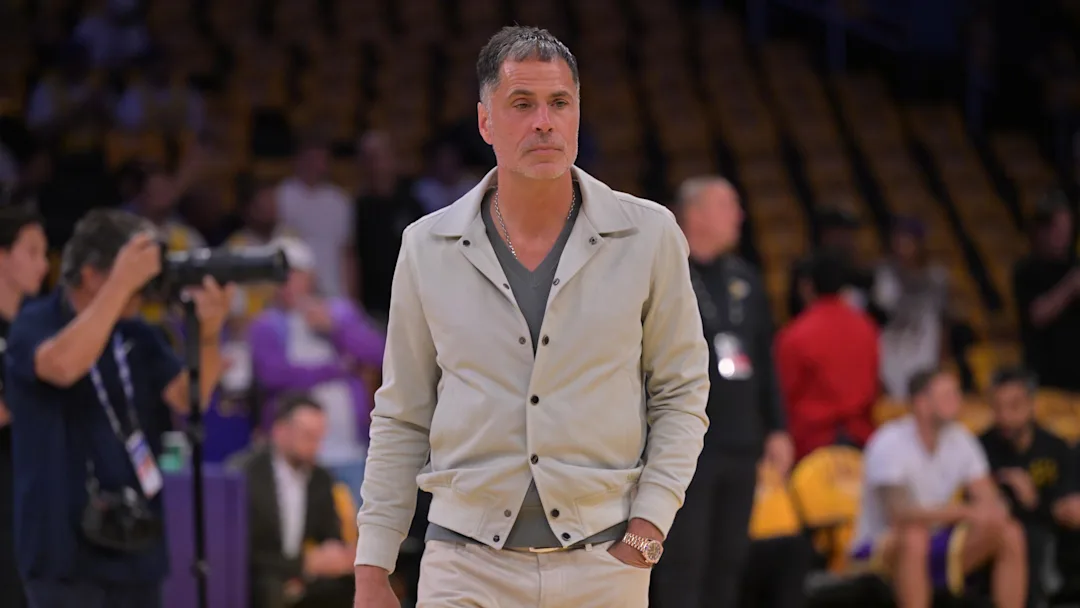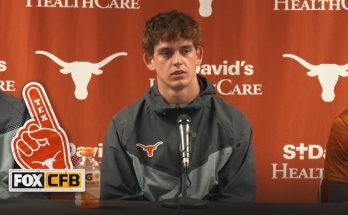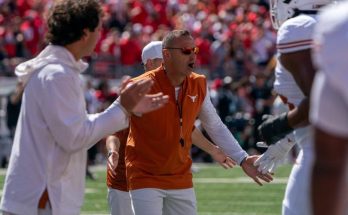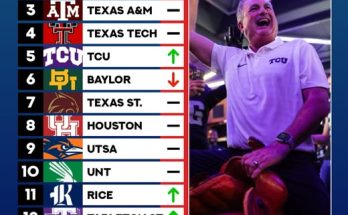The Los Angeles Lakers, one of the most iconic franchises in all of professional sports, find themselves at a critical juncture yet again. After an underwhelming 2024-2025 season filled with injury setbacks, roster inconsistencies, and unfulfilled potential, the team enters the offseason with more questions than answers. One particularly loud and persistent call has emerged among NBA analysts, fans, and insiders alike: the Lakers must seriously consider signing a seasoned, seven-year NBA veteran who has proven his value around the league — a player who may not carry superstar flair but offers precisely the kind of utility, leadership, and grit that can help re-anchor a team grasping for direction. In this case, we’re talking about none other than Derrick Jones Jr.
The idea of adding Derrick Jones Jr. to the purple and gold isn’t just a fan dream or a speculative headline. It’s an argument built on a foundation of performance data, roster need, and strategic team chemistry. Derrick Jones Jr., currently coming off one of his most impactful seasons with the Dallas Mavericks, is entering unrestricted free agency with his stock as high as it has ever been. While he might not make headlines like LeBron James or Anthony Davis, his value lies in the intangibles — elite perimeter defense, athleticism, positional flexibility, and an unselfish approach to the game.
From the Lakers’ perspective, their most glaring needs heading into the 2025-2026 NBA season revolve around perimeter defense, transition scoring, and consistent energy from their second unit. These are precisely the attributes that Derrick Jones Jr. brings to the table. At 6-foot-6 with a 7-foot wingspan, Jones has established himself as a reliable defender who can guard multiple positions. In a league where defensive versatility is more crucial than ever, his ability to switch onto guards and wings alike makes him a valuable plug-and-play asset.
When examining the Lakers’ 2024-2025 campaign, it’s evident that the team struggled defensively against younger, faster, and more dynamic perimeter offenses. The Lakers were frequently exposed in transition and off-ball movement, with older legs on the wing unable to keep up with the league’s fastest scorers. This deficiency became even more glaring when Anthony Davis had to overcompensate for weak perimeter coverage, often leading to foul trouble or reduced offensive impact.
Now, consider what Jones Jr. adds to a defensive scheme. His impact with Dallas last season was substantial; he often guarded the opposing team’s best wing scorer and held them well below their scoring averages. Whether it was contesting jump shots with his length or disrupting passing lanes with his timing, Jones was a menace on the defensive end. His defensive box plus-minus ranked among the top 20 among wing defenders, and his defensive field goal percentage against was well below the league average. These are not fluke stats — they are a reflection of his discipline, anticipation, and hustle.
Beyond defense, Jones brings tremendous athleticism and energy — two things that the Lakers bench sorely lacked this past season. In particular, his ability to finish above the rim adds a dimension to the Lakers’ transition game that could prove pivotal. While LeBron James is still capable of leading the break, his advancing age means the team needs younger legs to help execute and finish fast breaks. Jones excels at sprinting the lanes and converting lobs, often creating highlight-reel finishes that also swing momentum in close games.
In half-court settings, his offensive game has developed steadily over his seven-year career. Though not a primary scorer, Jones has improved his corner three-point shooting and is now respected enough to stretch the floor. With the Lakers often relying heavily on iso sets and post-ups, having a slasher who doesn’t demand the ball but can finish efficiently when given the opportunity is a strategic advantage. His presence would give spacing to stars like LeBron and AD while also rewarding drive-and-kick opportunities generated by D’Angelo Russell or Austin Reaves.
Speaking of chemistry, one of the understated values that Jones Jr. offers is his team-first mentality. He doesn’t disrupt locker rooms, doesn’t demand a large role, and has been praised by coaches and teammates alike for his professionalism and work ethic. In a Lakers culture that has often seen its fair share of ego clashes and internal drama, adding a stable, focused veteran presence cannot be overstated.
Another strong argument in favor of bringing in Jones is affordability. Unlike pursuing top-dollar free agents who would eat into the Lakers’ already tight salary cap situation, Jones is projected to sign a mid-level exception deal or something slightly north of that. This financial flexibility is critical for the Lakers as they attempt to navigate a cap landscape shaped by recent CBA changes and the supermax deals tied to their stars. By securing Jones on a team-friendly deal, they retain the ability to strengthen other parts of the roster — perhaps adding another shooter or backup big man without sacrificing future flexibility.
In addition to performance and financial fit, there’s a deeper philosophical question that the Lakers’ front office must wrestle with: how do they want this team to be remembered in the twilight of LeBron James’ career? Is the goal to patchwork a contender every year with high-profile but often disjointed talent? Or is it to build a balanced, cohesive roster that complements its stars with high-effort, high-IQ role players who are willing to do the dirty work? The latter path, while less flashy, has proven successful time and time again — from the Miami Heat’s gritty playoff runs to the Denver Nuggets’ depth-oriented title campaign.
Jones is also battle-tested, with meaningful playoff experience. In Dallas, he embraced his role and delivered crucial minutes against top-tier opponents. His postseason minutes weren’t just filler; he was often tasked with game-changing defensive assignments and delivered under pressure. This ability to thrive in high-stakes moments makes him an ideal candidate for a Lakers squad that will inevitably face the brightest lights come April and May.
The decision to target a player like Derrick Jones Jr. reflects a broader shift in team-building philosophy. The NBA’s current landscape isn’t just about assembling the most stars — it’s about assembling the best-fitting team. A well-rounded roster can often outperform a top-heavy one when the playoffs demand strategic flexibility and defensive resilience. In this light, Jones is not just a “nice addition” — he could very well be the missing link.
Critics may argue that Jones’s offensive limitations make him a liability in spacing or that his lack of shot creation diminishes his late-game value. But this critique ignores how stars like LeBron and Davis dominate possession-heavy sequences. The Lakers do not need another primary ballhandler or scorer — they need defenders who can stay in front of the league’s elite guards and wings, energy players who make hustle plays, and reliable teammates who stay ready. Jones checks all those boxes and more.
There’s also a compelling mentorship angle at play here. Players like Jalen Hood-Schifino and Max Christie are expected to take developmental leaps this year. Having someone like Jones, who has carved out a niche through hard work and adaptability, can serve as an invaluable example. His presence would raise the standard in practices, push younger players to compete harder, and reinforce the value of earning your minutes through defense and effort.
What further elevates Jones’s case is his health and durability. In a league where load management and frequent injuries disrupt continuity, Jones has been remarkably available and in shape. He takes care of his body, plays through pain, and brings a level of physical resilience that would benefit a team often hamstrung by injuries. If nothing else, the Lakers need players who can be counted on to show up night after night and bring consistency — especially in the grind of the regular season.
There is also a branding element, albeit secondary, that should not be ignored. The Lakers have long prided themselves on having high-flyers, entertainers, and athletes who bring Staples Center (now Crypto.com Arena) to its feet. Derrick Jones Jr., a former Slam Dunk Contest champion, fits the mold of showmanship while backing it up with substance. His electrifying style of play would not only energize fans but also provide a spark to a team that at times appeared lethargic last season.
In conclusion, the Lakers’ reported interest in signing a seven-year veteran like Derrick Jones Jr. isn’t just another offseason rumor — it’s a calculated, pragmatic move that aligns perfectly with their current roster deficiencies, financial constraints, and championship ambitions. While the NBA offseason often centers on superstar transactions and blockbuster trades, it’s often the quiet acquisitions — the savvy veteran signings — that end up making the biggest impact. Jones represents exactly the kind of under-the-radar addition that could pay enormous dividends, not just statistically but in overall team culture and playoff readiness.
The Lakers have a choice to make. They can chase another big name, perhaps at the expense of roster balance, or they can invest in what wins games when it matters most: defense, versatility, effort, and role clarity. With all those values in mind, there’s a strong, persuasive case to be made that Derrick Jones Jr. is not only the right fit — he might just be the signing that helps bring banner number 18 to Los Angeles.



